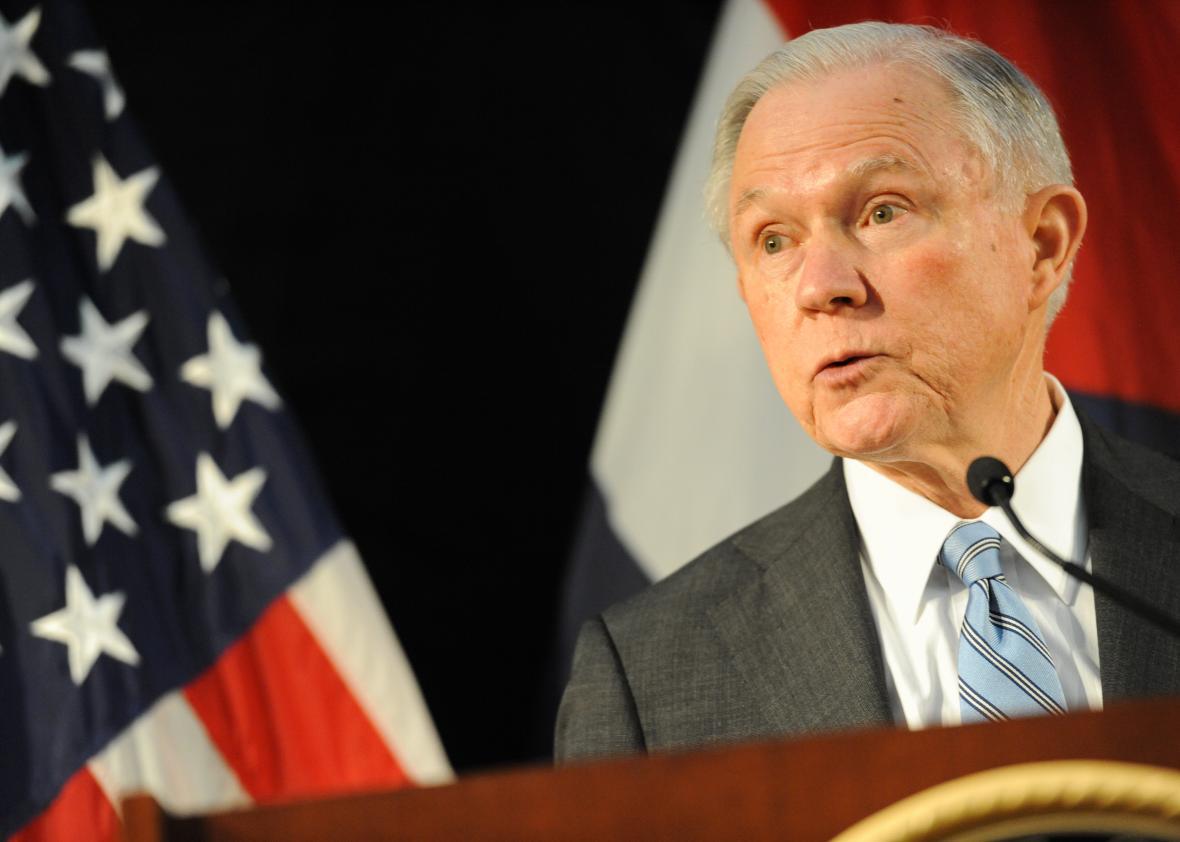With the Trump administration, it can be hard to tell whether decisions and orders—especially ones that appear positive from a progressive vantage—are backed by a sinister plan, evidence of a misstep, or simply a happy accident. How, for example, should voters interpret Attorney General Jeff Sessions’ decision to keep fighting for the Affordable Care Act’s contraception mandate? Religious schools and nonprofits have been fighting in court to get out of notifying the government and insurance companies of their religious objections to providing contraception coverage for employees. They argue even the act of filling out such a form violates their religious freedom and “triggers” provision of contraceptives, even though someone else would be paying for those contraceptives. On Monday, the Justice Department signaled that it will continue the Obama administration’s legal battle against these groups.
The case in concern is East Texas Baptist University v. Price, a cluster of lawsuits filed by religious organizations against the Department of Health and Human Services, which the eight-person Supreme Court handed back down last year. The federal government is now supposed to negotiate a compromise with the university and the other plaintiffs in the U.S. Court of Appeals for the Fifth Circuit. After some of the plaintiffs called for the Department of Justice to “admit defeat and dismiss this appeal,” the Trump administration filed a request on Monday for a 60 day extension on its negotiations on account of the many vacancies in the departments that administer the rules in question.
Conservatives are baffled, the Washington Post reports, because Trump had promised in explicit terms that he would axe the Obama administration’s rules that compelled employers to cover contraception under the ACA. He specifically called out the Little Sisters of the Poor, one of the plaintiffs in the case Sessions may continue to fight, in a letter to the Catholic Leadership Conference in October, calling the contraception mandate “a hostility to religious liberty you will never see in a Trump administration.” Sessions could easily make good on this promise by abandoning this court appeal. He could allow all the religious groups to claim whatever objection to basic preventive health care they please. Tom Price, Trump’s HHS secretary, could also easily reinterpret what exactly the ACA’s requirement of acceptable coverage for essential benefits entails. Since Price has been a vehement opponent of the contraception mandate—he has said he doesn’t believe any single woman in the U.S. has trouble affording birth control—it’s puzzling that he hasn’t.
Maybe these guys are too busy to restrict birth-control access right now. Maybe they don’t know what they’re doing, or they’re lulling progressives into complacence in preparation for some big unexpected reversal. But then again, maybe they’re paying attention to public opinion. Trump loves to be loved, and the public loves contraception coverage a lot more than Republicans in office do. A poll of registered voters conducted in March found that 77 percent of women and 56 percent of men want to keep the ACA’s contraception mandate. When the men in the poll learned that the average patient saves $250 a year with the mandate, and out-of-pocket costs would most likely rise without it, their support increased to 64 percent. A large majority of both men and women (62 and 77 percent, respectively) said that access to affordable birth control “helps my community,” and most agreed that it helps the economy.
Americans generally support the contraception mandate for religious employers, too. In 2016, more than two-thirds of respondents in a Pew Research Center survey said organizations with religious objections to birth control should still have to cover it for their employees. Even among people who attend religious services at least once a week, half thought these religious objectors shouldn’t be exempt from the mandate. That would be one good reason, at least politically, for Sessions to keep defending the contraception mandate.
